The orcas (Orcinus orca) of Valdes Peninsula, Patagonia Argentina, are known for their extraordinary intentional stranding behavior, a unique hunting technique found nowhere else in the world. This fascinating predator, a symbol of intelligence, is an essential part of the region's marine ecosystem.
Exploring Valdes Peninsula
Península Valdés, located in the province of Chubut, Argentina, is one of the most impressive natural destinations in the world. Declared a UNESCO World Heritage Site, this region is famous for its biodiversity and ecological importance. Home to various marine species, such as southern right whales, sea lions, and orcas, Península Valdés offers a unique environment for wildlife observation in its natural habitat. Its rocky coastlines, pristine beaches, and crystal-clear waters attract tourists and scientists from around the world, making it a wildlife sanctuary in the heart of Patagonia.
The Largest of the Dolphins
Although often called “killer whales,” orcas are not whales, but the largest dolphins in the world. These impressive creatures are apex predators, known for their distinctive black-and-white coloration that makes them unmistakable.
Males can grow up to 9.8 meters long, while females measure between 7 and 8 meters. A distinctive feature of orcas is their dorsal fin: in adult males, it can reach up to 2 meters in height, forming a right triangle that makes them easily identifiable. In females and juveniles, the fin is smaller, about 90 cm, and has a curved or “falcate” shape, similar to other dolphins. In addition to their size, orcas have an amazing ability to adapt, being capable of thriving in both cold and temperate waters.
Males live shorter lives than females, ranging from 30 to 50 years in the wild, while females are estimated to have a lifespan of 50 to 60 years.
Unique Adaptations: The Orcas of Valdes Peninsula
Orcas are known for their incredible intelligence, communication skills, and complex hunting strategies. Unlike other populations of orcas around the world, those in Península Valdés have developed exceptional strategies, the result of generations of learning in a unique environment. These unique and fascinating techniques have amazed both scientists and visitors alike.
Two key aspects of orca behavior in this region are:
1. Intentional stranding, a hunting technique observed only in Península de Valdés.
2. Their matriarchal social structure, a model of cooperation and knowledge transmission that ensures the survival of the group.
Intentional Stranding
The intentional stranding, first observed in 1974 in Valdes Peninsula, is an impressive technique used by orcas to hunt their primary prey: pups of the South American sea lion (Otaria byronia) and elephant seal pups (Mirounga leonina).
he process is astonishing:
– First, orcas use their keen sense of hearing to locate their prey. They can identify the sound made by pups moving their flippers or playing near the shore, even from several meters away.
– Then, they precisely calculate the direction and speed of their attack, intentionally sliding onto the beach where they capture their prey.
– Finally, they use their powerful tail and front flippers to pivot and return to the water in a coordinated and spectacular movement.
What makes this technique even more fascinating is that it is not innate: orcas must learn it over years of practice, guided by the more experienced females. This behavior carries significant risk, as stranding could be fatal if they fail to return to the water in time. Watching this phenomenon live can take days of patience, but the spectacle is worth every second of waiting.
Social Structure: Matriarchal Groups
Orcas are not only skilled hunters but also highly social animals. They live in matrilineal groups, led by an adult female (the matriarch), who is usually the mother or grandmother of the group.
Orca groups, made up of direct descendants like sons, daughters, and grandchildren, stay together for life, showing strong family bonds and cooperation in hunting, pup care, and defense.
In Valdes Peninsula, females play a crucial role in the transmission of knowledge. They teach the younger generations hunting techniques and survival strategies, ensuring the continuity of their cultural traditions.
Orca Watching in Valdes Peninsula
Are you ready to experience this incredible natural spectacle? Check out the details of the trip – New Tour: Patagonian Orcas


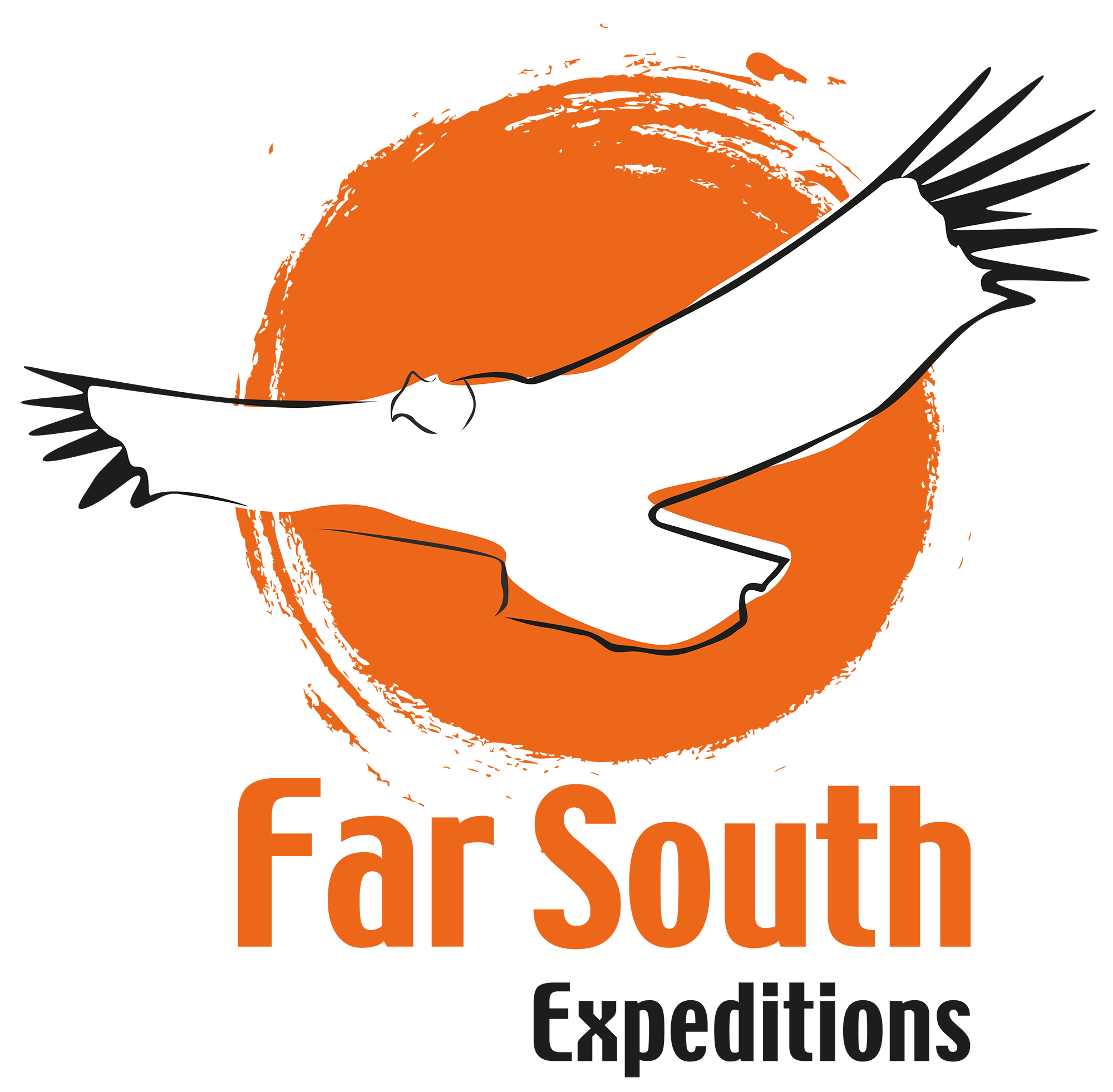
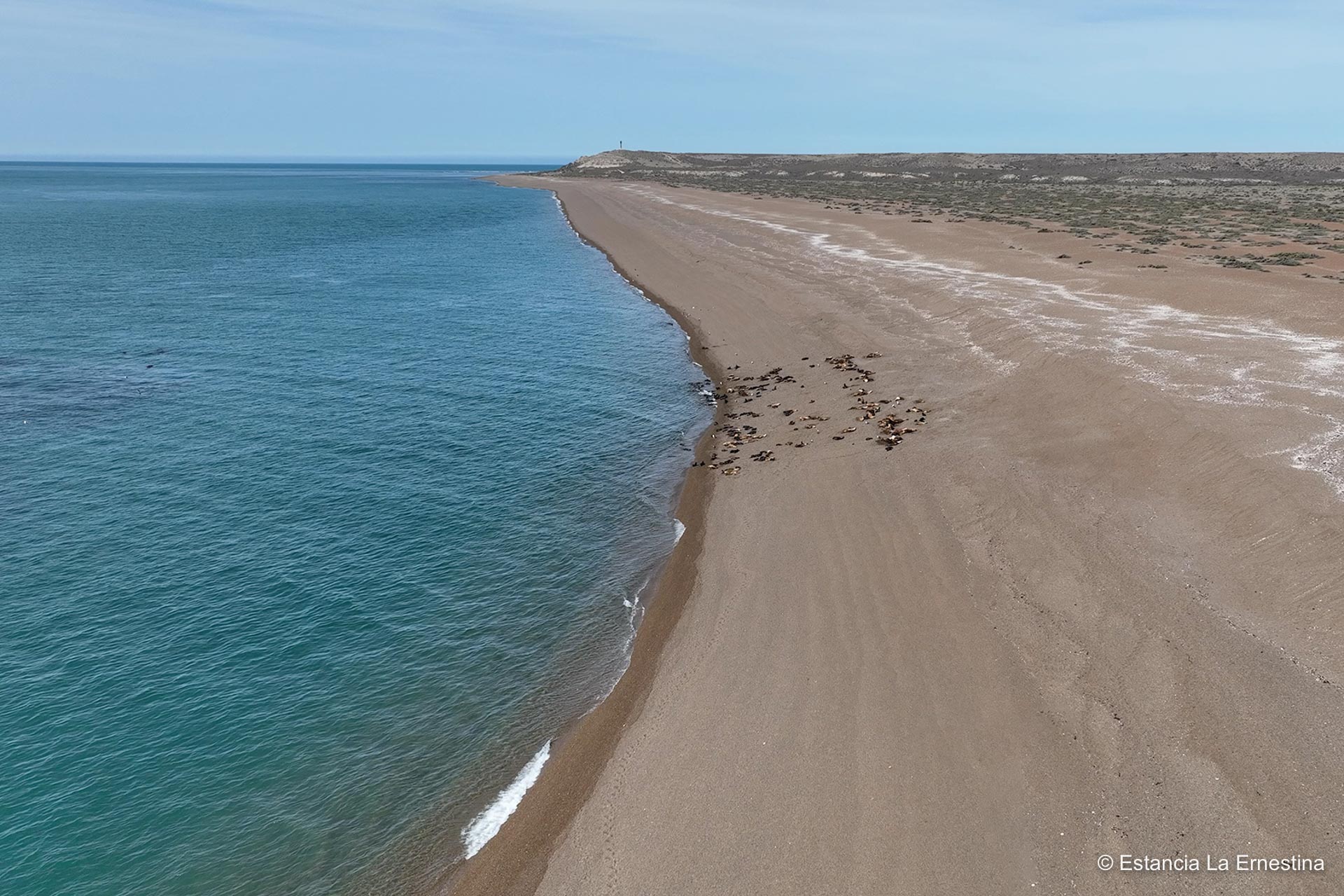
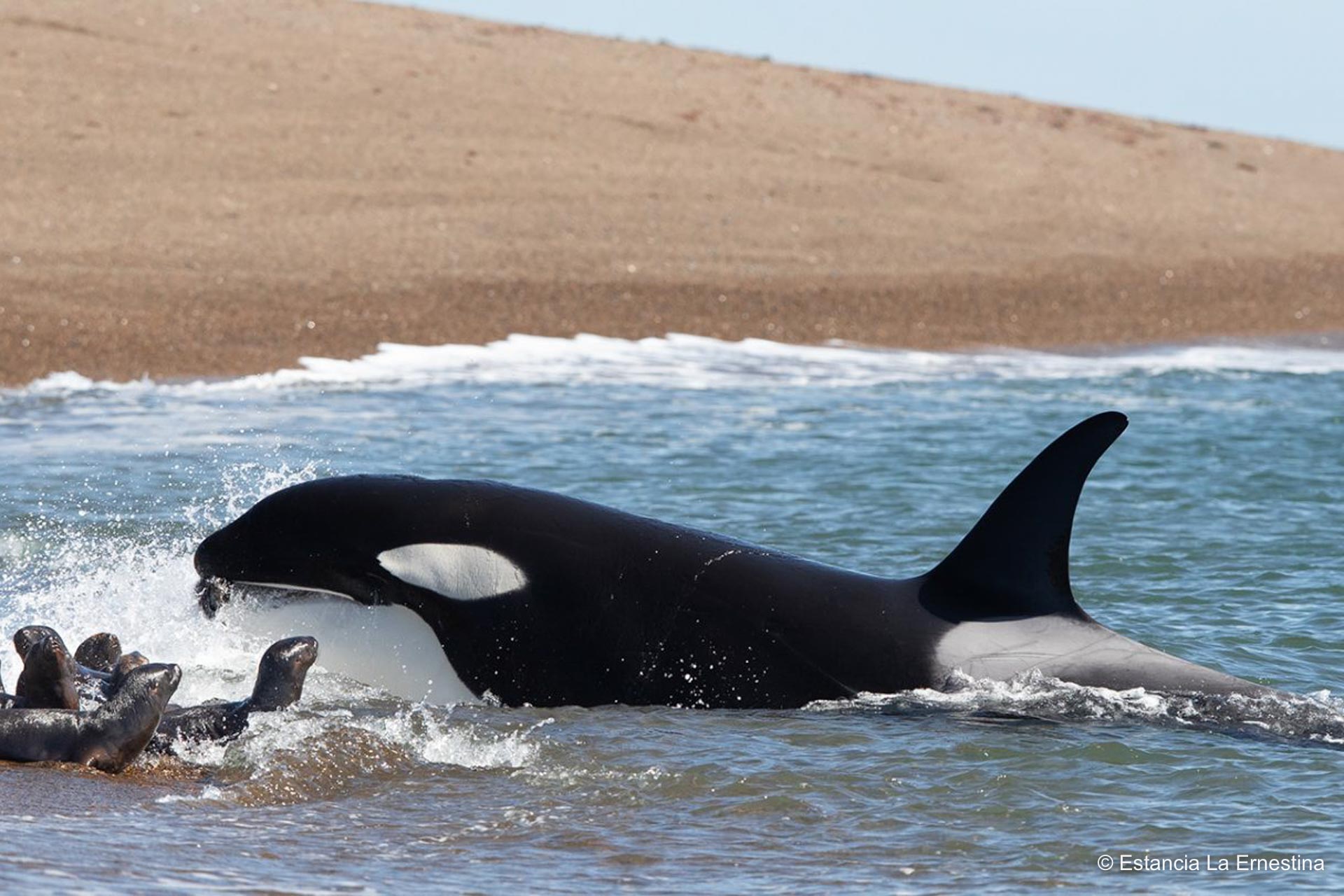
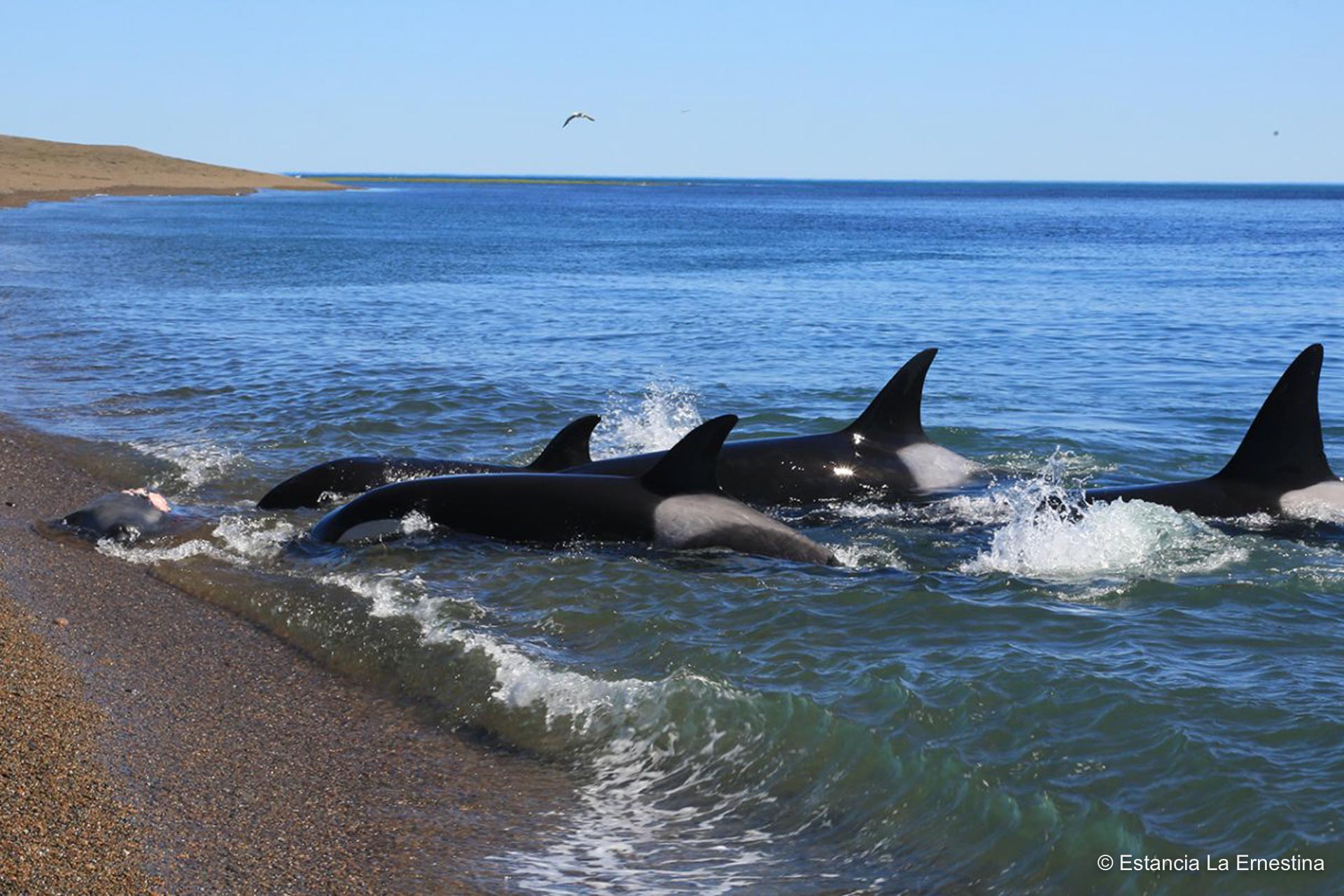
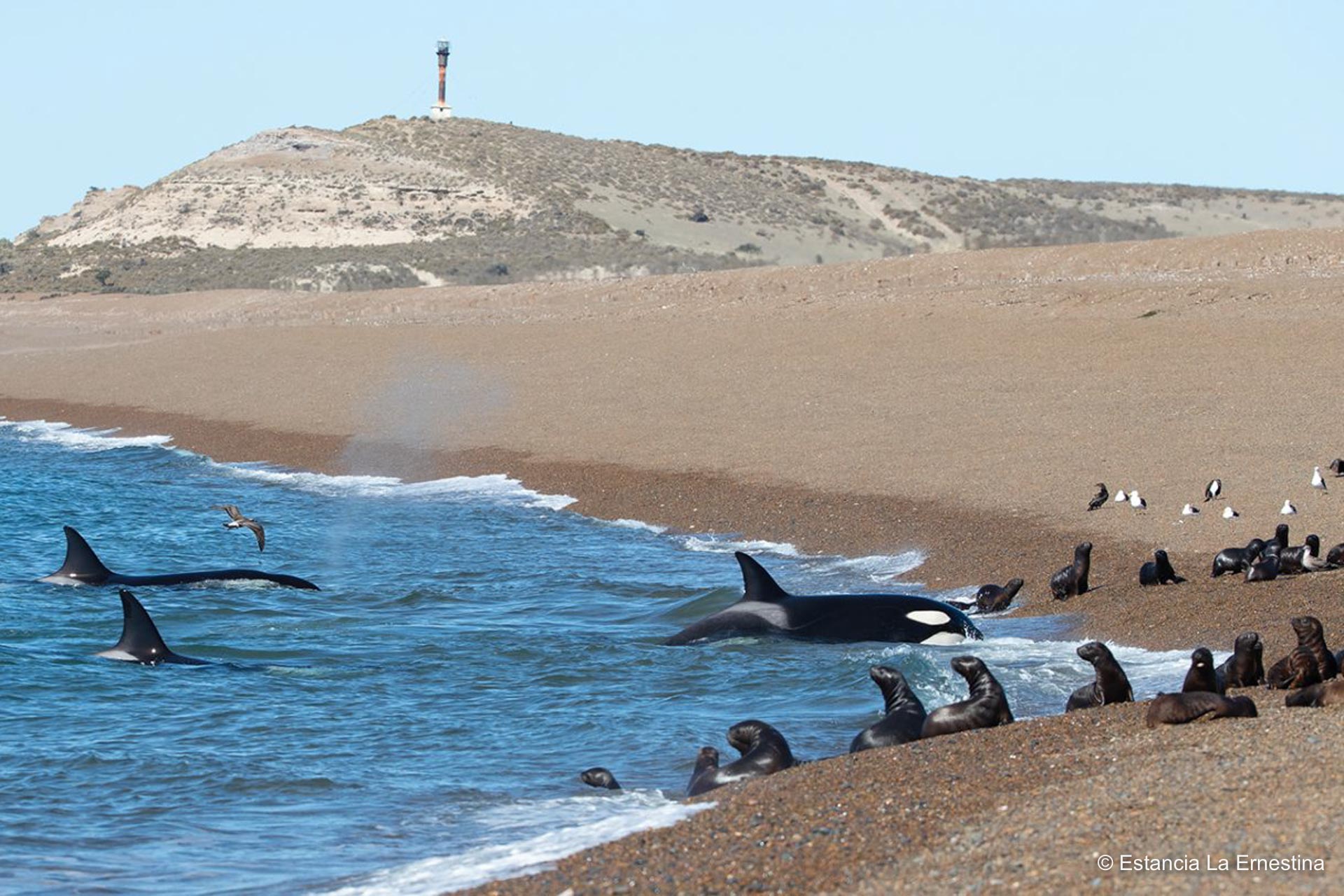
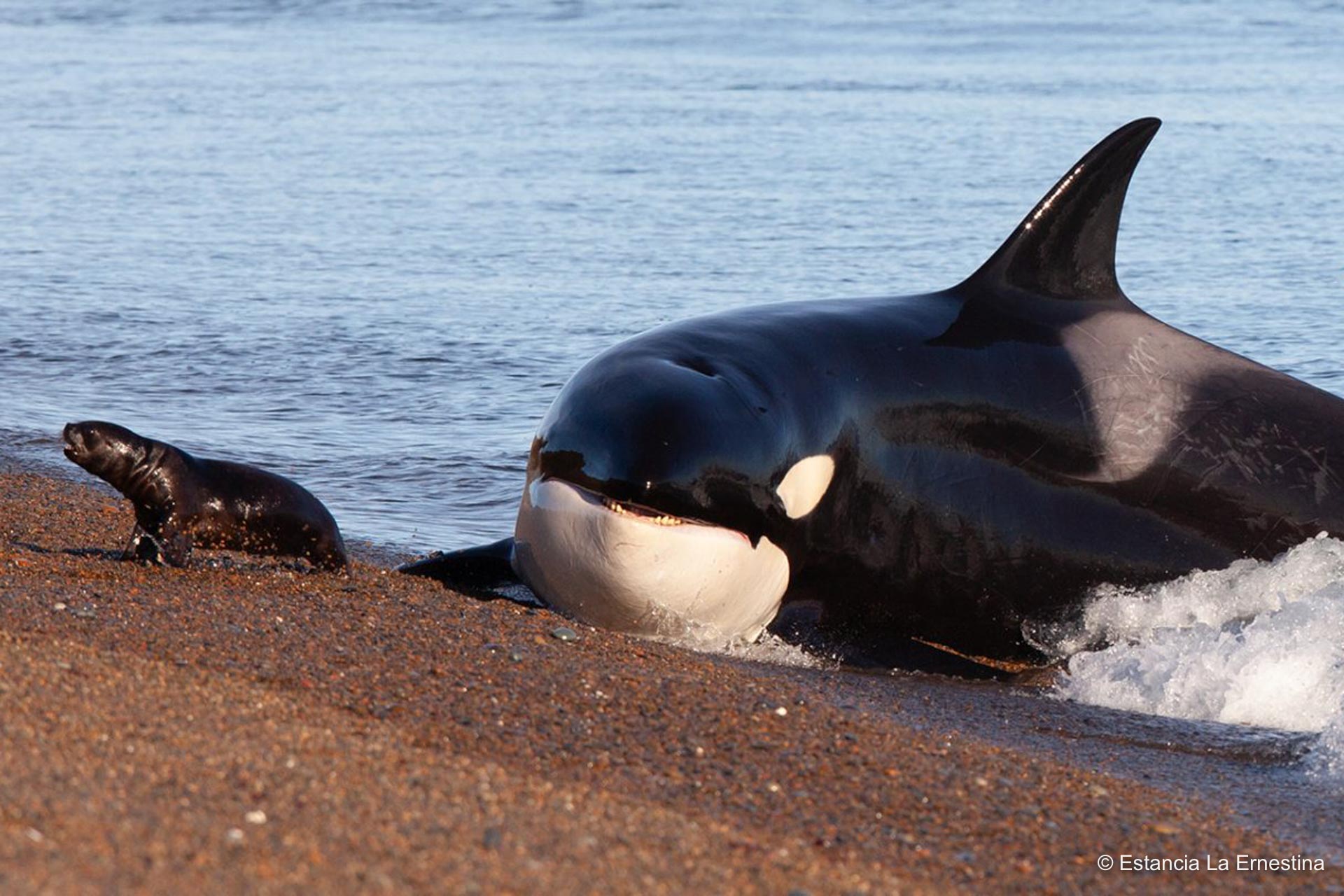
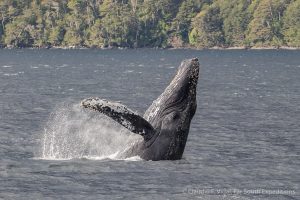
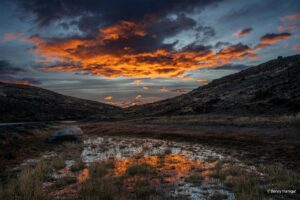
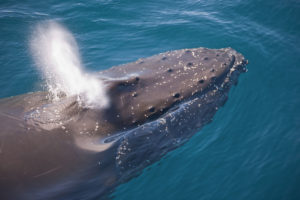
Leave a Reply
Your email is safe with us.